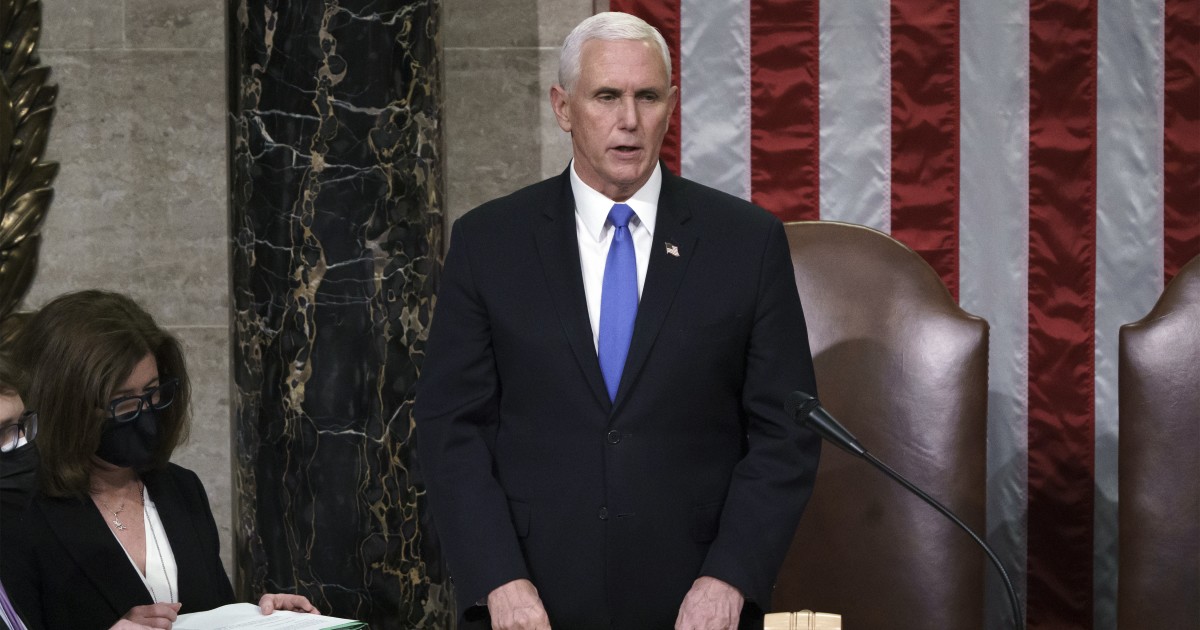
House Democrats are pondering impeaching President Trump for inciting last week's Capitol riot. But before that, they are trying another route, with a nonbinding resolution calling on Vice President Mike Pence to lead a palace coup.
Citing Section 4 of the Constitution’s 25th Amendment, Democrats propose and the House will soon vote on a measure calling for just that — for Pence to assume power, ousting his boss. This is a gimmicky attempt to shirk congressional responsibility, and it represents a threat to the constitutional order that is different from, but no less real, than that presented by the mob that swarmed the Capitol.
The 25th Amendment states that if “the President is unable to discharge the powers and duties of his office,” then the vice president can assume control with the consent of a majority of the Cabinet. If the president disputes this action or meets majority Cabinet resistance in having it rescinded, Congress has 48 hours to decide the question.
Section 4 was written because there are dire situations in which a president could be in office but unable to govern and yet unable or unwilling to admit as much in writing. It is the constitutional remedy if, for example, a president were in a coma or suffering a diagnosable psychotic episode and behaving in a delusional manner, or kidnapped and held under threat of force. Or perhaps a president might simply abscond and be uncontactable, as did former South Carolina Gov. Mark Sanford.
These are the conditions for which the 25th Amendment was written. But even egregious presidential wrongdoing does not imply incapacity to exercise presidential duties. Section 4 of the 25th Amendment was not written to give the Cabinet authority to sit in judgment on a president’s moral fitness to govern, only his physical and mental fitness to govern of his own free will.










